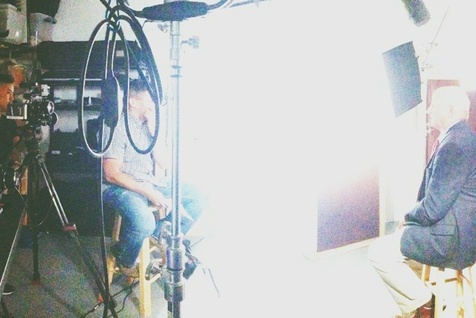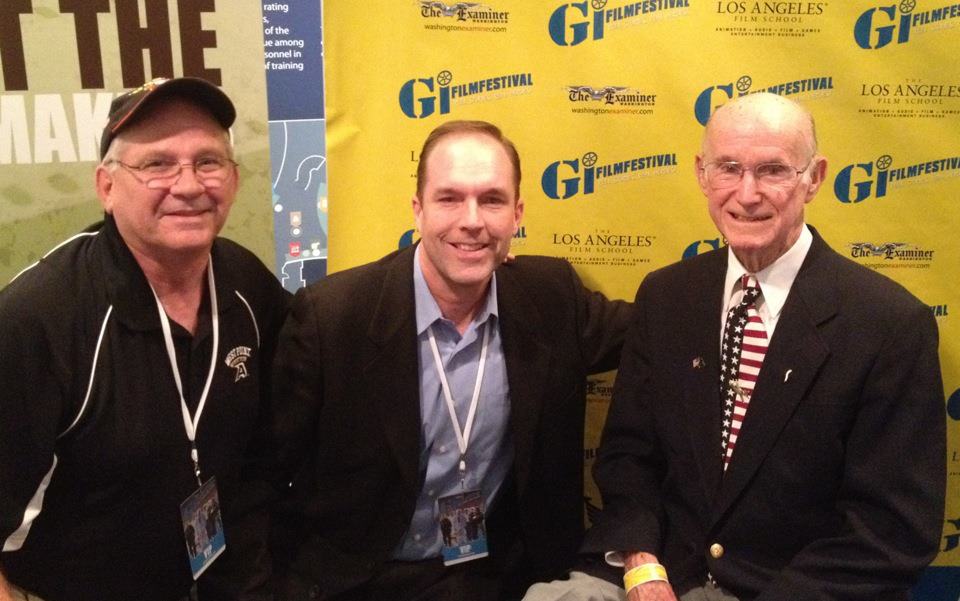|
Jim Wilhite :: In May Emily and I traveled to Tallahassee, Florida and met with Adam Braun of Frame Productions, LLC. After a short visit I sat in a chair under some hot lights and began the filming of We Answered the Call. I spent about five hours sharing my experience with the camera and crew and departed with a whole new appreciation for what people go through that live under these circumstances. While I was only sitting, I was exhausted when finished. We then traveled to Orlando where I spent a week with Screenwriter Scott Holmgren and his wife Annamarie. I had a couple of speaking engagements while there and we started developing a plan of action for the future of the documentary project. The following Friday, Emily and I departed Orlando and returned to Tallahassee for additional filming. While I think we got most of my part completed, I know there will be additional work to be done to finalize this story that needs to be told. In October, we will be meeting at West Point to do interviews with select faculty that assisted in the implementation of the academy. I am currently working with West Point to finalize the approval for support of our being on campus with a film crew. Hopefully that will be completed sooner than later. Jim – under the lights in Tallahassee – being interviewed.
1 Comment
Scott Holmgren ::
No, not Gene Wilder and Zero Mostel. Not even Nathan Lane and Matthew Broderick. Jim and I had to ask ourselves, "Did we want to become producers of a documentary?" Fortunately we had met the production team at Frame: Adam Braun, Patrick Gines and Bryan Zhang. Based in Tallahassee, FL and boasting projects produced for companies and organizations both large and small, Frame could handle the know-how necessary to steer us in the right direction and might be able to help us get this snowball rolling down the hill. I had given Adam a copy of Jim's book, and after reading it, Adam was intrigued with the possibility of telling the story. Several dozen emails, text messages and phone calls later, we had sketched out a tentative plan to see how we might be able to raise the funds necessary to make a documentary. We would need to create some teaser videos and a promo video. We wanted to demonstrate that this was a serious project and that we were willing to roll up our sleeves and activate it. After more discussion, we decided a road trip to Florida was in order. Leo Bloom: Max, I think we're getting in too deep. Max Bialystock: Too deep? This is nothing. I'll tell you when we're getting in too deep. ~ The Producers Scott Holmgren :: It's an amalgam of professionalism and personal vulnerability when you ask for someone's opinion of your work. And still after 25 years of creative, design and producing, there's the wonder of "what will they think?" I had sent the first draft of the screenplay for We Answered the Call a few weeks earlier. When the email came back from the script reader, I did pause for a second before opening the attachment. Call it a moment of creative trepidation. It was anything but. The coverage sent back by the script reader was a breath of fresh air. After spending more than a year on the first draft of the adaptation of Jim's book, I was too close to it. The reader confirmed several things. The script needed to be willing to distance itself from the source material. Fewer characters, the absence of a clear antagonist, and a more demonstrative change in the protagonist. Also, the conflict orchestration and character development needed refining and greater stakes. Overall, pivotal scenes needed more conflict. It was exactly what we needed. In addition, there were plenty of positives and an encouragement to continue development. Time to start thinking about the next draft. At that time Jim, his wife Emily, and I attended the G.I. Film Festival in Washington D.C. They call it "Sundance for the troops..." Started by a husband/wife team, the festival "is the first in the nation to exclusively celebrate the successes and sacrifices of the service member through the medium of film." It seemed like the ideal venue to test whether our story might have a broader appeal and what stories were currently being told. It was several days of premiers, meeting filmmakers and supporters of the military, and introspection about our project. At the end of GIFF, we had confirmation that there was an opportunity for us to tell Jim's story through film. But perhaps a feature length piece was not the place to start. Jim and I discussed how a documentary might be the better first step. Though a significant undertaking, a documentary could be produced on a much smaller scale, with a more manageable budget, and a clearer goal in mind. As well, if we had a screenplay and an already-produced documentary under our belt, might that carry more weight when sharing the vision for a narrative movie? Our conversations took a turn in that direction... Who did we already know who might be able to help us?... What would a documentary look and sound like?... What production logistics would there be?... And - most importantly - what would it cost?... It was at that point that I met Adam Braun, Patrick Gines and Bryan Zhang, the names behind Frame. At the G.I. Film Festival in Washington D.C. After the screening of the award winning documentary "The Lost Airmen of Buchenwald," Jim and Scott met and thanked World War Two veteran Don Shearer who survived the unbelievable ordeal.
|
AuthorsColonel James Wilhite Archives
December 2017
Categories
All
|


 RSS Feed
RSS Feed